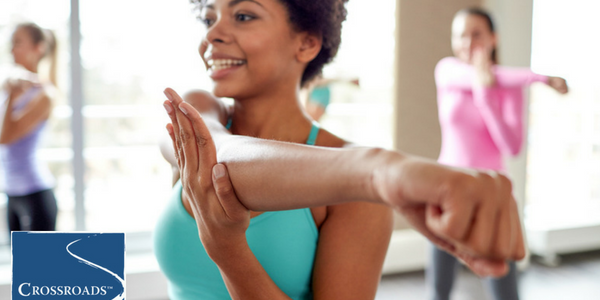Addiction recovery is a journey, and it can be a challenging path at times. It requires hard work and dedication to overcome addiction and help the body and mind to heal. Drugs and alcohol can take a toll on the body, and physical recovery may require extra effort. Receiving help for drug addiction can teach clients how exercise and recovery can go hand-in-hand for more beneficial and lasting results.
Putting the Body Back Together
How the Body Suffers from Addiction
Drugs and alcohol can harm the body inside and out. It can lead to abnormal heart rhythms and increased risk of stroke or heart attack. The liver and kidneys must work harder to process alcohol as well as other substances consumed. In addition, the liver can become scarred and damaged making it less effective at doing its job. Substance use can also take a toll on bones and muscles as well as exacerbate the symptoms of various types of mental health disorders.
The Benefits of Gradual Exercise
Fortunately, exercise has its benefits for addiction recovery. While in active addiction, you may have been relatively sedentary and not truly working your heart and lungs in a healthy way. By taking a more proactive approach to exercise and addiction recovery, you may find that becoming more active and slowly integrating different activities into your day can leave you looking and feeling better. Many people find that exercise can be a positive distraction and stress reducer in addition to reducing risk of heart disease, diabetes, depression, and other health conditions.
Don’t Go Overboard!
That being said, it’s important not to go to extremes and overdo it on the exercise. Start slowly and let your body get used to it as you build up your endurance, strength, and flexibility. This is especially important when it comes to exercise and anorexia recovery as well as addiction recovery, because you want to create a healthy relationship between body image and physical activity.
Stress, No Thank You!
Cold Turkey with a Serving of Mood Swings
In the early stages of addiction recovery, weaning your body off of substance use can make you feel weak and your mood may fluctuate. The stress can make the signs and symptoms of anxiety disorder more noticeable. However, recognizing this means you can more effectively treat both conditions together. Exercise has both physical and mental benefits in recovery, so be sure to incorporate it into your routine a few times a week.
Exercise the Blues Away
The endorphins released during exercise can serve as a natural mood booster. Getting in a daily workout can keep you feeling more positive and upbeat. Endorphins have a similar effect to some pharmaceuticals – our own bodies create powerful yet natural pain relievers while also producing a sense of euphoria – without the use of any substances. Serotonin and norepinephrine levels are also increased which can help ward off depression.
Maximizing Enjoyment with Exercise
You may also find that combining exercise and recovery is fun – you can try new activities while supporting your physical and mental health. Whether you’ve always wanted to get outdoors, take up biking, try kickboxing, join a running club, or get more involved with yoga, now is a great opportunity. In moderation and with the right strategy in place, exercise and anorexia recovery can work well together as women develop a healthier relationship with their body and enjoy being active for their well-being.
Re: Focus
A Drug-Hazed Mind
Drugs and alcohol can make it seem as if your mind is in a fog. This feeling can last even into early recovery and make it more difficult to focus and concentrate. Engaging in exercise and recovery strategies can help to clarify thinking. Plus, with the boost in endorphins, exercise can help to curb negative thoughts and allow you to stay focused on your recovery goals and progress.
Clearing the Fog with Exercise
Brain fog doesn’t only occur with addiction – it can also be a natural part of aging. However, did you know that exercise boosts brain functions in normal conditions? It can help to protect your memory and thinking skills, stimulate new blood vessel growth, and reduce cognitive impairment. With just 150 minutes of moderate physical activity each week, you can help to clear brain fog and become more focused and energetic.
Exercise and addiction recovery can work in hand-in-hand to help you reduce the impact of substance abuse on your body and mind. Not using alcohol and the benefits to recovery from exercise can support overall health by strengthening your muscles and joints, promoting positive thinking, and allowing organs to work more effectively.
While exercise alone is not an effective treatment for addiction, when combined with a professional program at Crossroads, it can play an integral role in the road to recovery. Plus, exercise can become something you look forward to as you try new activities and find what you enjoy. Crossroads empowers clients in recovery and addresses the physical, mental, emotional, social, and spiritual impact of addiction. Start your journey by contacting Crossroads today!
[cta]Strengthen your body, clear away brain fog, and feel more motivated in recovery by combining exercise and professional treatment from Crossroads![/cta]


















